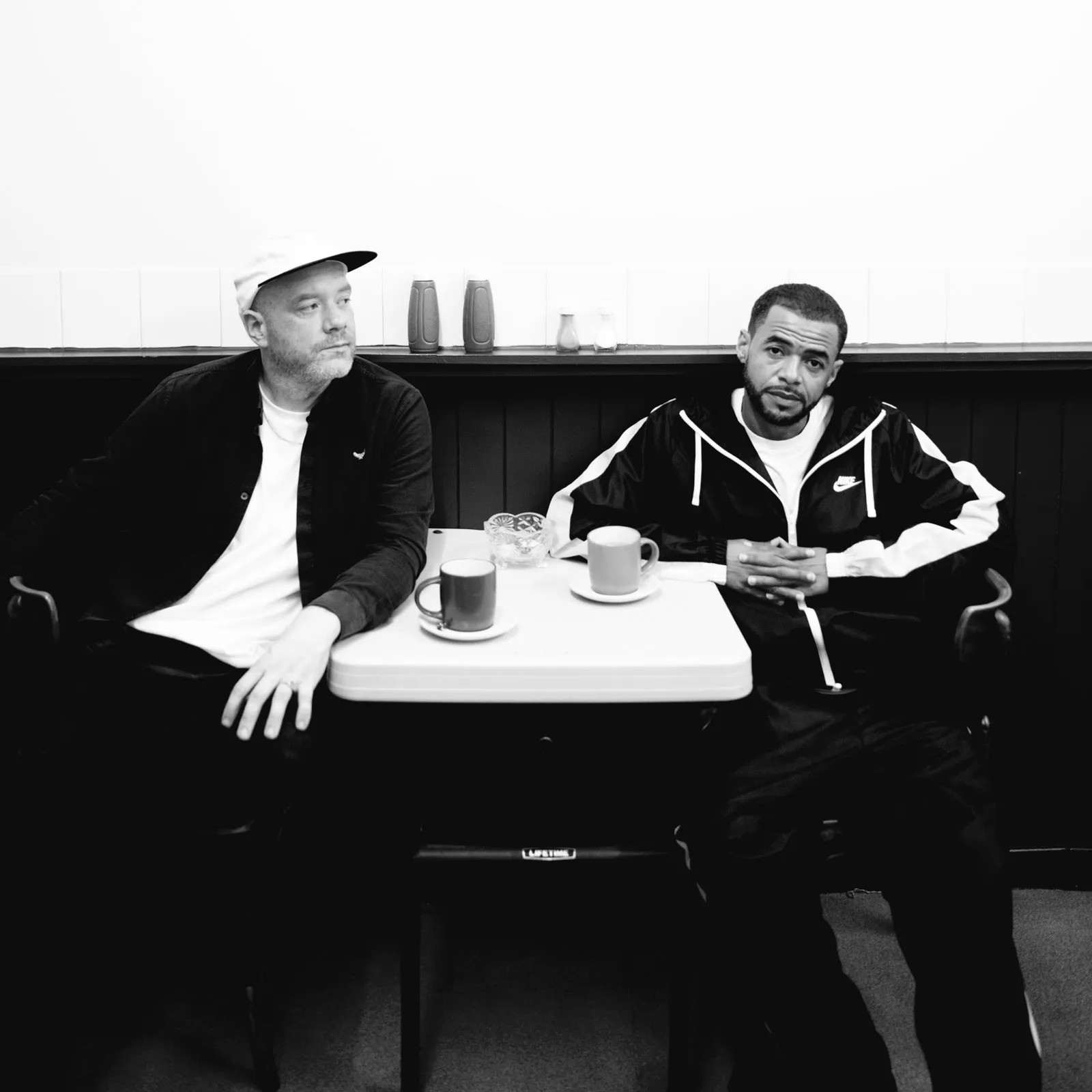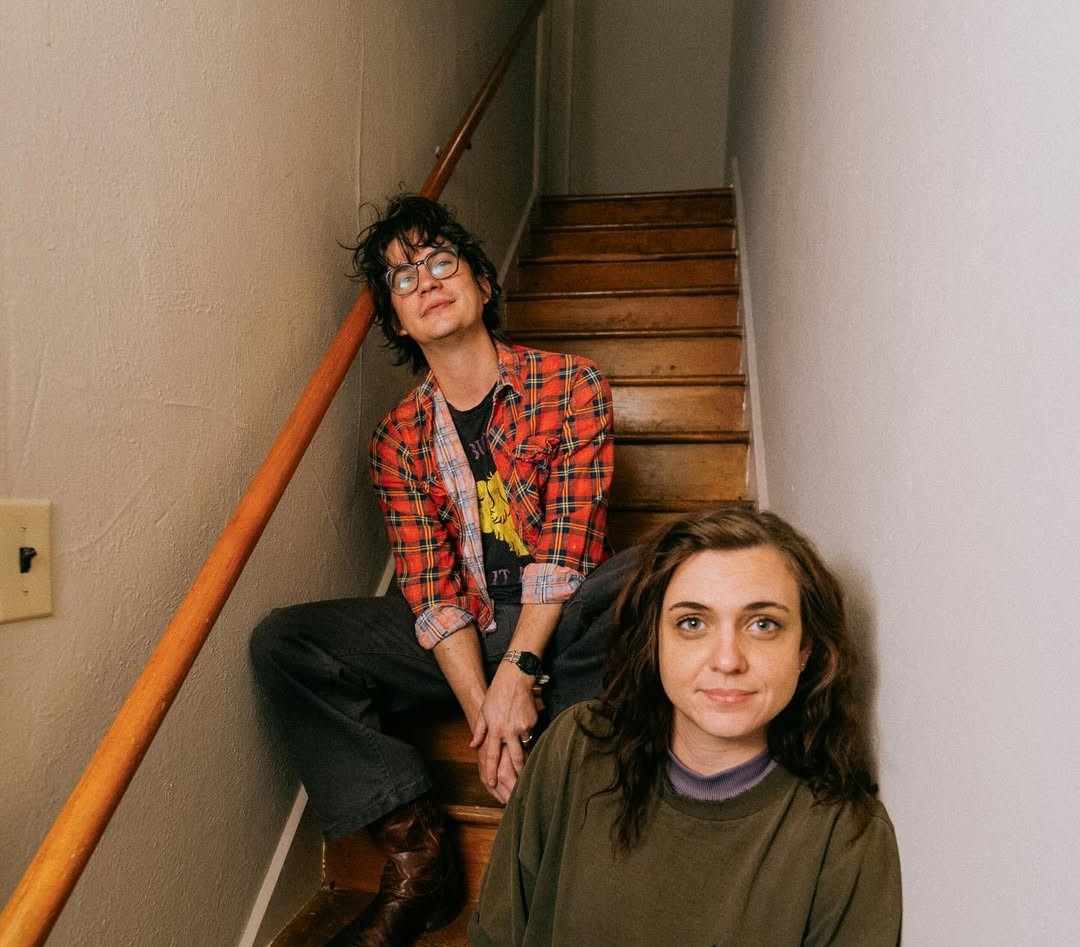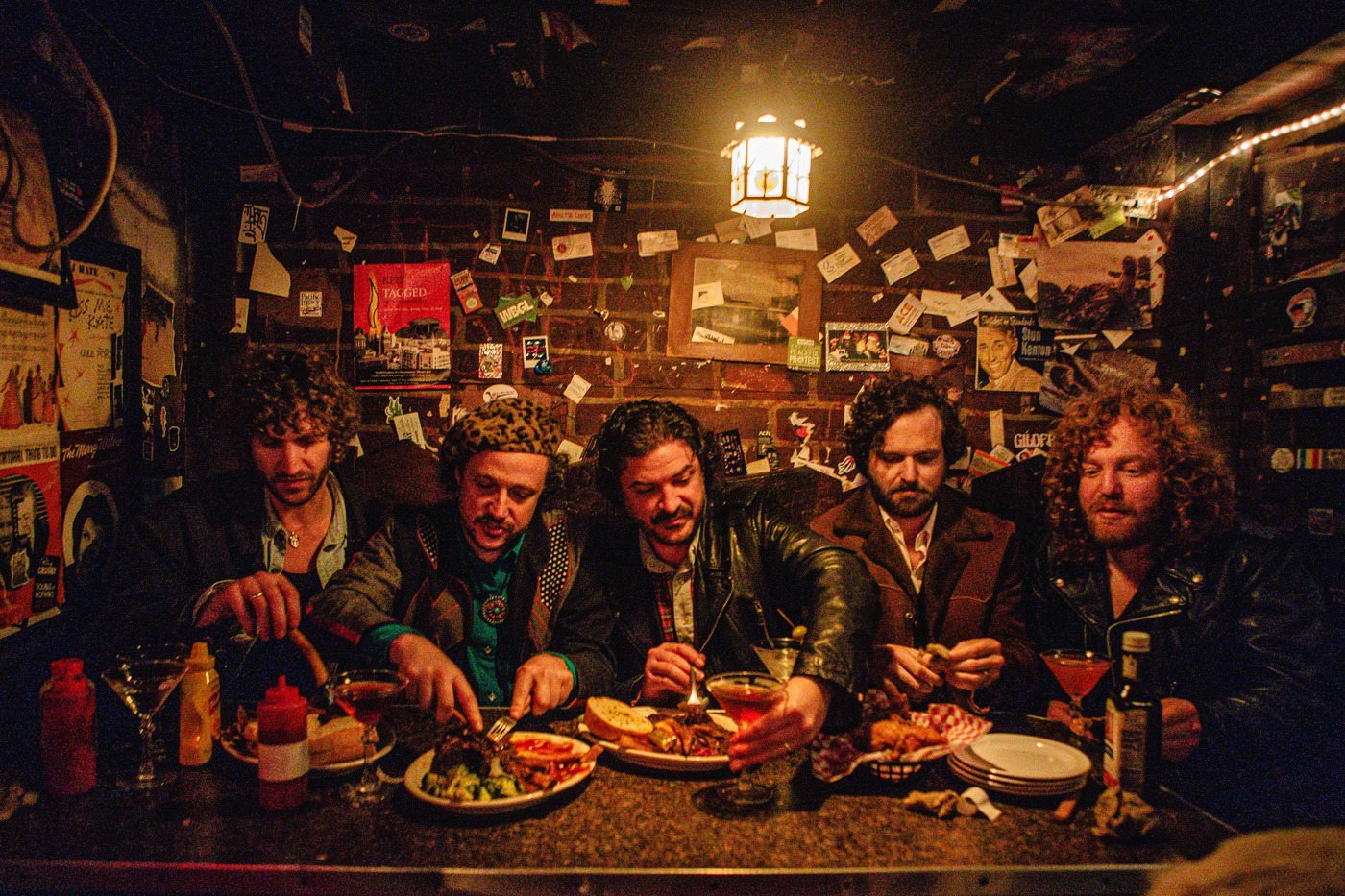Confucius MC on Life, Loss, and the Making of ‘Songs for Lost Travellers’
‘Songs for Lost Travellers’ unfolds as a meditation on life’s fleeting nature, where Confucius MC and producer Bastien Keb offer their reflections on the inevitability of time and death.
The album is a meditation on time, life, and death, where Confucius MC and producer Bastien Keb bring unhealed reflections to the forefront. This album feels like a spiritual journey, blending diverse styles with rich jazz undertones to explore the human condition in a way few records can. From the understated lullaby of ‘Tell Me Lies’ to the stark reality of ‘Time Will Come,’ Con and Keb unravel the balancing act between joy and sorrow, permanence and transience, all within the confines of their musical universe.
The pair have thrown away the safety net of professional studios and embraced the gritty reality of home recording. The result is a sound that’s both unpolished and deeply human, capturing the essence of their creative space—intimate and lo-fi, where moments of peace and grief coexist. It’s an album made for quiet reflection, for moments when solitude becomes a canvas, and grief becomes a companion. The presence of family adds to the atmosphere—Con’s track ‘Little Man’ for his son is a tender, almost cinematic gesture, while Keb introduces saxophone snippets from his mother and cousin, lending warmth to the project.
These are artists reaching beyond themselves to share a universal experience, embracing the quiet power of family, time, and the fleeting nature of it all. This is an album that resists the pressure of expectation, creating something that speaks directly to those who know the weight of both struggle and beauty. It’s a reminder that, in the end, we’re all just passing through—lost travellers in a world that doesn’t offer easy answers.
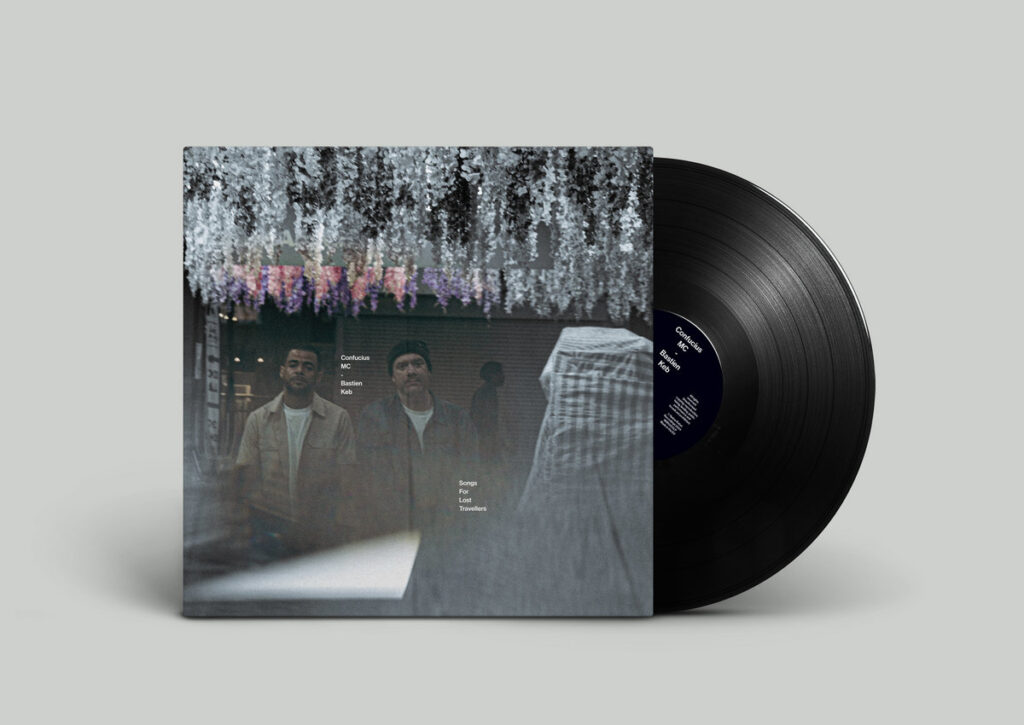
“I’ve always used my writing as an outlet for understanding pain and trauma in my life”
‘Songs For Lost Travellers’ feels like a very intimate, almost sacred space. How did you and Bastien Keb approach the concept of vulnerability in your creative process, and what drew you to work with lo-fi, home-recorded sounds rather than the polished studio environment?
Confucius MC: It was something that came about really organically. I’d just set up a microphone at home when we started working on the record and sent Keb some “demos.” He was really into them, so we just kept working in that way. There was a vibe that was getting captured that just felt right. In a way, I think it also shaped how personal the record became because I was literally writing and recording in the moment, which isn’t always possible in a high-end studio situation where there’s more emphasis on productivity than experimenting. I love recording in the studio and the energy of being in a space with a history, but I think for this album, it just worked. And yeah, I guess your own space is a “sacred” space. I wanted the delivery on this record to feel close and sincere, as opposed to a performance.
The album seems to explore grief as a form of resistance, a protest against numbness in today’s world. Can you talk a bit more about the role grief plays in your work and how it informs the philosophical undercurrents of the album?
I really like the way you put that. I guess grief is an unavoidable and essential part of the human experience. As painful and heavy as grief/loss can be, it can also heighten our awareness of how precious the present moment is. There’s a reason we listen to sad songs. I’ve read lots of interesting things about the effects of listening to sad music on the mind. Apparently, it releases chemicals in the brain that have a really positive effect on our mental health and neurological well-being. There’s a kind of therapy in the way that they turn pain into something beautiful, and there’s obviously a strong philosophical transmission in that alone. I’ve always used my writing as an outlet for understanding pain and trauma in my life, and if that, in turn, becomes a positive thing for another person, then that’s a beautiful thing.
You’ve mentioned that your son plays a role on the album, especially on the track ‘Paramount.’ How has fatherhood shaped your perspective on both your artistry and the messages you want to share through music?
It’s most definitely had a big impact. I think it’s made me proud of the ground I’ve covered as an artist and the example of a different approach. When I was writing, I think it’s made me a lot more aware of the legacy that I’m leaving behind as an artist. I also feel like it’s given me a stronger drive to push the creative boundaries and keep chipping away to find the truest expression of myself. I didn’t have a great relationship with my own father, and he wasn’t very present in my life as a child or an adult. When I found out he passed away a few years ago, I suddenly found myself needing that connection more than ever, and becoming a father myself has only intensified that need. I guess going through that experience has given me more of an urgency about saying what I need to say while I’m able to, and there’s something very comforting about the thought of future generations listening to my words and experiences long into the future. Having this in mind adds an extra weight of importance to everything I’m doing as an artist.
“I kind of like the idea of the record being like a signpost that guides you back to a place”
The album’s title, ‘Songs For Lost Travellers,’ evokes a sense of journey, of searching. Is this a metaphor for something more personal in your own life, or is it meant to be more universal in its reach?
I think it’s both. On a universal level, I think everyone can identify with feeling like a lost traveller at some point on their journey through life. Sometimes you just can’t seem to get to where you want to go, and other times you’re trying to find a way back to yourself. On a personal level, I was definitely writing a lot of these songs through difficult times in my life, and they started to become a bit like a map towards the light. I kind of like the idea of the record being like a signpost that guides you back to a place you’d maybe forgotten about but needed to see again!
There’s a rawness and almost tactile quality to the album, with elements like the static in ‘Tell Me Lies’ making the listener feel like they’re inside your world. How do you think this level of immediacy and openness alters the listener’s experience of your music?
I think the listener will feel the same way I felt when Keb was sending me this music: like it was very personal and sincere. I felt like it required a response with the lyrics that had the same level of honesty, like no masks allowed. There’s something that feels really direct about it, like you’re in the room with us.
The creative chemistry between you and Bastien Keb seems to draw on influences from folk, rap, jazz, and even elements of ambient. How did you two negotiate these diverse musical terrains? Was it an instinctive process, or did you both have specific goals?
I definitely wanted to jump into the folk world that Keb had been building and felt like it would almost be an interesting experiment to see what happened. There were definitely obvious directions we could’ve taken with the sound, but I think we were both conscious of the fact that we wanted to make some music that lived in a slightly different world than the classic “rapper-producer” hip-hop record. Keb’s a ridiculously talented and instinctive musician. We’d talk on the phone for an hour or so, maybe talk about an idea for a song, and then an hour later he’d send me an idea that was perfect. That’s pretty much how most of the songs came about.
Tracks like ‘Little Man’ are deeply personal, as you dedicate them to your son. What role does personal storytelling play in your work, and do you feel that this approach to writing makes your music more relatable to listeners?
Definitely. I think, as much as ‘Little Man’ is deeply personal to me, it’s also a song for anyone who has someone in their life that they care about. I think storytelling plays a big part in it. ‘Little Man’ is a much more focused, direct approach, but in other instances, it’s the little lines that detail a moment of real life that catch people. That’s part of what I love about rap—the way that sometimes four bars can contain a whole lifetime of experience and understanding.
‘Songs For Lost Travellers’ features family members and intimate moments, like Bastien recording his mum on saxophone. How does this blend of personal and familial presence on the album speak to the idea of community, and do you see this as a form of legacy building in your music?
This will be the second record that my son’s voice has appeared on, so there’s definitely a sense of legacy building. I also think there’s something powerful about a blend of generational voices that really adds to the essence of what the album is saying. Music has always been about community for me, and as my brother KwakeBass says, you always make the best music with friends, family, and the people you connect with. That’s something that transcends music.
“I’ve had so many spiritual experiences through creating and performing music”
There’s a spiritual quality to the music, especially with the idea of finding peace through solitude. How does spirituality influence your creative output, and does it shape your understanding of music as a tool for personal or collective transformation?
I’ve had so many spiritual experiences through creating and performing music. For me, it’s impossible for the two not to go hand in hand. Music is a totally spiritual thing for me. The process of writing rhymes is very much embedded in solitude; when I’m writing, it’s like a zen space that can’t be disturbed. It’s hard to find these moments in life, so a lot of my creative process is about taking advantage of the moments of solitude that I find.
I’ve seen firsthand many times the power of music as a tool for both, and it’s definitely something I’m aware of as an artist and also in my work as an educator.
How does your experience teaching rap and mentoring students influence your work today?
I think it’s just a constant reminder of the power of words and influence. It’s also a constant reminder of the power of young people to be resilient and creative and find new ways of doing things. That’s a powerful energy, so I try to remember to be open to new ways of doing things myself.
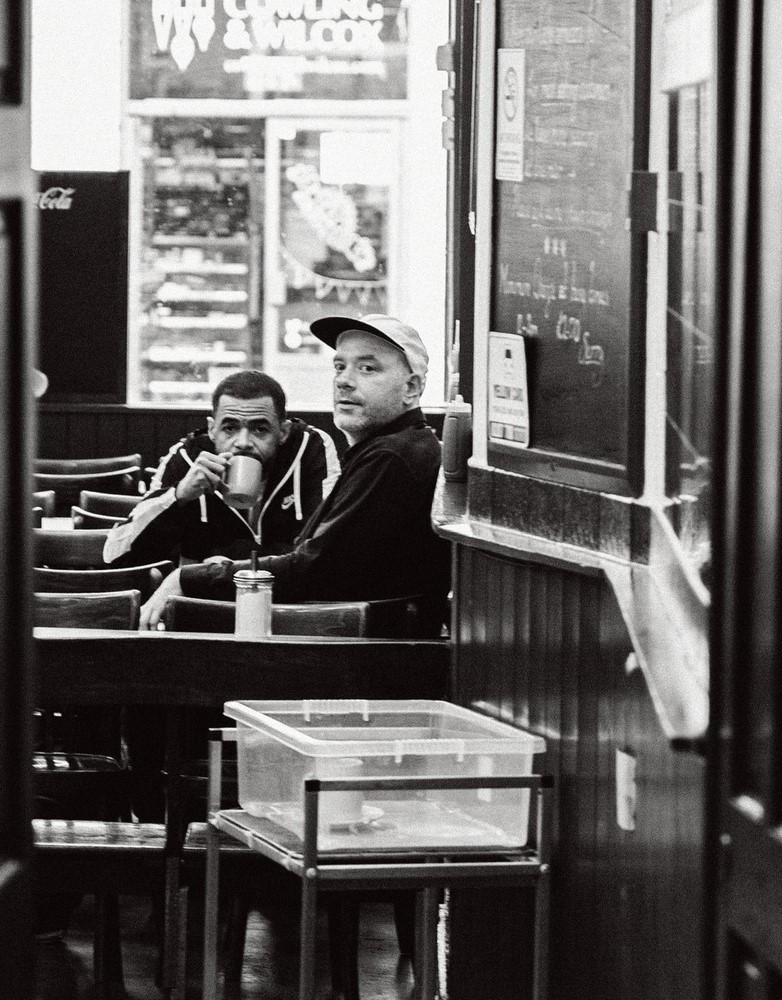
Finally, the album has been described as unlike anything either of you have done before. What does that mean to you?
For me, it just means we stuck to our principles and made the music that we wanted to make, not the music that maybe people would expect us to make. It’s a blessing to know that it’ll be out in the world, and I really hope that people connect with it.
Klemen Breznikar
Confucius MC Facebook / Instagram / X
Bastien Keb Facebook / Instagram / Bandcamp
Native Rebel Recordings Official Website / Facebook / Instagram / X / YouTube / Bandcamp

